Table of Contents
Important Articles of the Constitution:
What is a Constitution?
- A constitution is a body of laws and principles that decides the working or the functions of the government.
- Our constitution is the basis on which our central, state, and local governments function.
- It also lays down the powers and the functions of the three wings of the government, i.e., the Legislature, the Executive and the Judiciary.
- It defines our national goals of democracy, socialism, and secularism, guarantees equality, liberty, justice, etc. to the citizens.
- It confers on us our fundamental rights and duties and also contains the directive principles for the government.
- It tells us about the intentions of our great leaders who drafted and gave us our Constitution.
Important Articles:
- Article 14 – Equality before law and equal protection of laws.
- Article 15 – Prohibition of discrimination on grounds of religion, race, caste, sex or place of birth.
- Article 16 – Equality of opportunity in matters of public employment.
- Article 17 – Abolition of untouchability.
- Article 19 – Protection of certain rights regarding freedom of speech etc.
- Article 21 – Protection of life and personal liberty.
- Article 21A – Right to elementary education.
- Article 25 – Freedom of conscience and free profession, practice and propagation of religion.
- Article 30 – Right of minorities to establish and administer educational institutions.
- Article 32 – Remedies for enforcement of fundamental rights including writs. This right entitles every citizen, who feels that his rights are being encroached upon, to move the Supreme Court, High Court, or any other court. The court has the power to review whether a person’s rights have been denied or snatched away from her/him. The Supreme court is the custodian of our fundamental rights. In fact, without these rights, the other rights would be quite meaningless.
- Article 40 – Organisation of Village Panchayats.
- Article 44 – Uniform civil code for the citizens.
- Article 50 – Separation of judiciary from executive.
- Article 51A – Fundamental Duties.
- Article 72 – Power of president to grant Pardons.
- Article 110 – Money Bill.
- Article 112 – Annual Financial Statement (Budget).
- Article 123 – Power of President to promulgate ordinances during recess of Parliament.
- Article 143 – Power of president to consult supreme court.
- Article 155 – Appointment of Governor.
- Article 161 – Power of governor to grant pardons.
- Article 169 – Abolition or creation of legislative councils in states.
- Article 213 – Ordinance power of governor.
- Article 226 – power of high courts to issue certain writs.
- Article 280 – Finance Commission.
- Article 312 – All-India services.
- Article 324 – Superintendence, direction and control of elections to be vested in an Election Commission.
- Article 330 – Reservation of seats for scheduled castes and scheduled tribes in the lok sabha or house of people.
- Article 335 – Claims of scheduled castes and scheduled tribes to services and posts.
- Article 352 – Proclamation of Emergency (National Emergency).
- Article 356 – President rule in case of failure of constitutional machinery in states.
- Article 360 – Financial Emergency.
- Article 365 – President rule due to failure to comply with the directions given by the union.
- Article 368 – Power of Parliament to amend the constitution and procedure therefor.
- Article 370 – Special status to J&K.
Distinction between Directive Principles and Fundamental Rights:
There is a great difference between directive principles and fundamental rights.
Firstly, the Fundamental rights are essential for the development of an individual, while directive principles act only as instructions to the government to help the latter formulate its internal and external policies.
Secondly, fundamental rights are justiciable but directive principles are not.
If a fundamental right is denied to you, you can approach a court of law, but you cannot move a court if any directive principle is not followed.
Thirdly, the fundamental rights have a legal sanction while directive principles have only a moral sanction.
CAPF Exam 2017:
- The central Vigilance commission was set up on the recommendation of – Santhanam Committee.
- The ninth schedule was added to the constitution of India by the – First Amendment.
- Which case in the Supreme Court of India dealt with the issue of ‘creamy layer’ among the backward classes – Indra Sawhney vs. Union of India.
- Which leader is associated with the concept of party less democracy – Jayprakash Narayan.
- Who is empowered to establish Interstate council under Article 263 of the constitution of India – President of India.
- Which river covered under the Indus water treaty 1960 – Ravi, Chenab, Beas.
- Which scholar has conceptualized the constitution of India as a ‘seamless web’ – Granville Austin.
- Govt. of which state has appointed the Rajamannar Committee to study the Centre-State relations – Govt. of Tamil Nadu.
- What was the mandate of the Dhar Commission (1948) – states can be re-organized on linguistic basis.
Civil Services Prelims Exam 2018:
1:- If the president of India exercise his power as provided under article 356 of the constitutional in respect of a particular state, then (a) The assemble of the state is automatically dissolved. (b) The powers of the legislature of that state shall be exercisable by or under the authority of the parliament. (c) Article 19 is suspended in that state. (d) The president can make laws relating to that state.
Ans:- The president can make laws relating to that state. (d)
2:- Right to Privacy is protected as an intrinsic part of Right to Life and Personal Liberty. Which of the following in the Constitution of India correctly and appropriately imply the above statements? (a) Article 14 and the provisions under the 42nd Amendment to the Constitution (b) Article 17 and the Directive Principles of State Policy in Part IV (c) Article 21 and the freedoms guaranteed in Part III (d) Article 24 and the provisions under the 44th Amendment to the Constitution.
Ans:- Article 21 and the freedoms guaranteed in Part III . (c)
3:- Consider the following statements: 1. In the first LokSabha, the single largest party in the opposition was the Swatantra Party. 2. In the LokSabha, a “Leader of the Opposition” was recognised for the first time in 1969. 3. In the LokSabha, if a party does not have a minimum of 75 members, its leader cannot be recognized as the Leader of the Opposition. Which of the statements given above is/are correct? (a) 1 and 3 only (b) 2 only (c) 2 and 3 only (d) 1, 2 and 3
Ans:- 2 only. (b)
4:- Consider the following statements: 1. The Parliament of India can place a particular law in the Ninth Schedule of the Constitutions of India. 2. The validity of a law placed in the Ninth Schedule cannot be examined by any court and no judgement can be made on it. Which of the statements given above is/are correct? (a) 1 only (b) 2 only (c) Both 1 and 2 (d) Neither 1 nor 2
Ans:- 1 only. (a)
5:- Regarding Money Bill, which of the following statements in not correct? (a) A bill shall be deemed to be a Money Bill if it contains only provisions relating to imposition, abolition, remission, alteration or regulation of any tax. (b) A Money Bill has provisions for the custody of the consolidated fund of India or the contingency fund of India. (c) A Money Bill is concerned with the appropriation of moneys out of the contingency fund of India. (d) A Money Bill deals with the regulation of borrowing of money or giving any guarantee by the government of India.
Ans:- A Money Bill is concerned with the appropriation of moneys out of the contingency fund of India. (c)
6:- With reference to the election of the president of India, consider the following statements. 1. The value of the vote of each MLA varies from state to state. 2. The value of the vote of MPs of the LokSabha is more than the value of the vote of KPs of the RajyaSabha. Which of the statements given above is/are correct? (a) 1 only (b) 2 only (c) Both 1 and 2 (d) Neither 1 nor 2
Ans:- Both 1 and 2. (c)
7:- In the Federation established by The Government of India Act of 1935, residuary powers were given to the (a) Federal Legislative (b) Governor General (c) Provincial Legislature (d) Provincial Governors
Ans:- Governor General. (b)
8:- Consider the following statements: 1. The Speakers of the Legislative Assembly shall vacate his/her office if he/she ceases to be a member of the Assembly 2. Whenever the legislative assembly is dissolved, the speaker shall vacate his/her office immediately. Which of the statements given above is/are correct? (a) 1 only (b) 2 only (c) Both 1 and 2 (d) Neither 1 nor 2
Ans:- 1 only. (a)
9:- Which one of the following reflects the most appropriate relationship between law and liberty? (a) It there are more laws, there is less liberty. (b) If there are no laws, there is no liberty. (c) If there is liberty, laws have to be made by the people. (d) If laws are changed too often, liberty is in danger
Ans:- If there are no laws, there is no liberty. (b)
10:- Consider the following statements: 1. No criminal proceedings shall be instituted against the Governor of a State in any court during his term of office. 2. The emoluments and allowance of the Governor of a State shall not be diminished during his term of office. Which of the statements given above is/are correct? (a) 1 only (b) 2 only (c) Both 1 and 2 (d) Neither 1 nor 2
Ans:- Both 1 and 2. (c)
11:- Which of the following are regarded as the main features of the “Rule of Law”? 1. Limitation of powers 2. Equality before law 3. People’s responsibility to the government 4. Liberty and civil rights Select the correct answer using the code given below: (a) 1 and 3 only (b) 2 and 4 only (c) 1,2 and 4 only (d) 1, 2, 3 and 4
Ans:- 1,2 and 4 only. (c)
12:- With reference to the Parliament of India which of the following Parliamentary Committees scrutinizes and reports to the House whether the powers to make regulations, rules, subrules, bylaws, etc. conferred by the Constitution or delegated by the Parliament are being properly exercised by the Executive within the scope of such delegation? (a) Committee on Government Assurances (b) Committee on Subordinate Legislation (c) Rules Committee (d) Business Advisory Committee
Ans:- Committee on Subordinate Legislation. (b)
13:- Consider the following statements: 1. As per the Right to Education (RTE) Act, to be eligible for appointment as a teacher in a State, a person would be required to posses the minimum qualification laid down by the concerned State council of Teacher Education. 2. As per the RTE Act, for teaching primary classes, a candidate is required to pass a Teacher Eligibility Test conducted in accordance with the National Council of Teacher Education Guidelines. 3. In India, more than 90% of teacher education institutions are directly under the State Governments. Which of the statements given above is/are correct? (a) 1 and 2 (b) 2 only (c) 1 and 3 (d) 3 only
Ans:- 2 only. (b)
14:- International Labour Organization’s Conventions 138 and 182 are related to (a) Child labour (b) Adaptation of agricultural practices to global climate change (c) Regulation of food prices and food security (d) Gender parity at the workplace
Ans:- Child labour. (a)

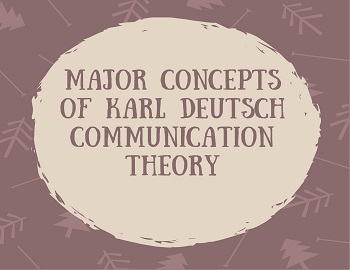

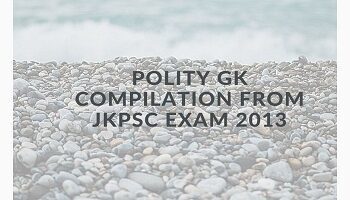
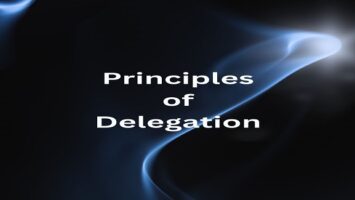
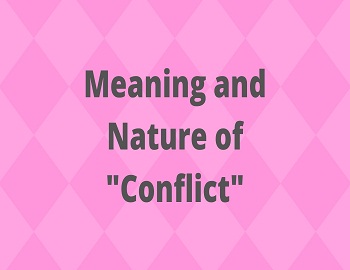

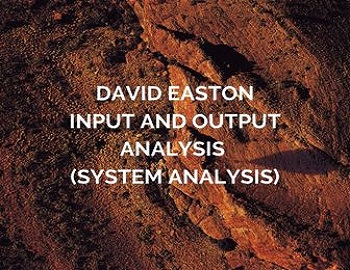

Comments (No)